- Home
- David Estes
Fatemarked Origins: Volume II (The Fatemarked Epic Book 2) Page 9
Fatemarked Origins: Volume II (The Fatemarked Epic Book 2) Read online
Page 9
“Over here!” someone shouted, causing Heinrich’s heart to feel as if it had leapt out of his chest.
He quickly located the source of the shout. Brisby, one of the youngest explorers, waved his arms over his head in the water. Heinrich and the rest of his men swam toward him.
“Found this stuck on one of the long purple plants,” Brisby said as they approached. A waterlogged sock hung from his pale fingers.
“Damnation,” Heinrich said. Other voices echoed his response. Every man in the company knew this sock, because Klein rarely took it off. His ‘lucky sock’ he called it, a hideous article of clothing originally striped red and white but which was now so stained it appeared brown and gray. As they often did, the men gave Klein a good ribbing the day before when he’d refused to leave the sock on shore, instead swimming with it on. And last night he’d hung it by the fire to dry, before pulling it on again just before bed.
“He wouldn’t have taken it off on purpose,” Heinrich said, trying to keep his voice calm. He was glad Josun wasn’t with them; he’d been assigned to the inland search.
“Other than last night when he needed to dry it by the fire, I’ve never seen Klein without it,” Brisby agreed.
“If he got fatigued, he might not have noticed it was missing,” Gunther, a scrappy man with a graying beard, suggested.
Heinrich considered this, nodded. “Klein was a good swimmer, but he could’ve underestimated the distance to the far side of the lake. If he got tired on the way back and lost his sock…”
Gunther picked up the thread of thought. “The current,” he said, pointing southward. Though it was fairly gentle, Heinrich could see the way the water was moving in that direction. In fact, based on their positioning relative to the dark smudge and curling smoke that identified the location of their camp, they’d drifted with the current while searching.
“I’ll check,” Brisby said. His fair hair and green eyes made the youngest explorer appear even younger.
“Go with him,” Heinrich said, gesturing to Gunther. Overall, they were the two strongest swimmers in the group, just a hair behind Klein. “The rest of us will follow on foot.”
Brisby and Gunther headed south, taking long slow strokes, paddling the water behind them. Heinrich led the other six men back to shore, where they dried off and dressed. When he glanced back across the water, he was surprised at Brisby and Gunther’s progress—they were already quite a bit further south.
Ousted and his party approached from the south. “Any luck?” the rugged man asked.
“We found his lucky sock,” Heinrich said. “No sign of Klein though.”
Heinrich was certain the grim look on his best friend’s face mirrored his own.
“Shite,” Ousted said. Then again: “Shite.”
“Brisby and Gunther are checking downlake. You and me will follow on foot. We’ll meet the rest of you back at camp. Get warm. Eat. Rest. Wait for our return.”
Grudgingly, the rest of the men agreed and trudged off through the snow, their shoulders weighed down by the situation.
“Klein wouldn’t take off his sock,” Ousted said as they started south at a brisk pace; Heinrich wanted to catch up with Brisby and Gunther before they got too far ahead.
“I know.”
“What do you think happened?”
Heinrich refused to meet his friend’s eyes, though he could feel them boring into the side of his head. “It might’ve gotten snagged on a plant. He might not have even noticed it was gone.” If he was being honest with himself, however, Heinrich knew it was a lie. He would’ve noticed.
Ousted nodded. “Possible,” he said, though Heinrich knew his friend well enough to know when he was lying through his teeth.
“The current is stronger than it looks,” Heinrich added. “Klein might’ve drifted south. If he did, Brisby and Gunther will find him.”
“The ice is south,” Ousted pointed out.
Heinrich had already thought of that, which was why time was of the essence. If Klein really was too tired to fight the current, he also might be too fatigued to cut a diagonal path back to shore, which meant he was in danger of being swept into the cold, sludgy waters they’d passed two days ago. If so…
Heinrich closed his mind to the thought, refusing to give up. He’d lost men before, aye, but he’d never given up on them without visual confirmation. And he wouldn’t now.
Still, as he scanned the water, tracking the two swimmers’ progress, Heinrich realized he was no longer searching for the telltale splashes Klein would be making if he were swimming. No, Heinrich was looking for a floating body.
Midday arrived. Heinrich’s stomach ached with hunger, but he ignored it.
He and Ousted had eventually passed the swimmers, moving ahead to meet them further south. He planned to check the sludgy ice flow for Klein—with any luck the man was stuck in it, still warm enough to survive with a little help. While Heinrich looked across the water, Ousted combed the rocky shoreline for any signs of the missing man.
Suddenly his friend buckled at the waist, dropping to one knee. “Oh, no,” he said.
Heinrich hurried over, assuming the older man was fatigued, perhaps dehydrated. He uncapped his waterskin and held it in the man’s direction. “Drink,” he said.
But Ousted only shook his head, his eyes cast downward.
Frowning, Heinrich moved around him and followed his gaze. Dread roiled through him like a bitter potion. His legs felt rubbery, but he managed to stay upright. He closed his eyes, but the image was burned in his mind, pulsing red and yellow.
A pale leg, a ragged stump, having been removed from the body by something sharp and jagged, leaving only torn flesh and cracked bones at the point where it was severed.
They’d found Klein, or at least what was left of him.
The icy wind whipped across Heinrich’s face, stinging his eyes. His legs churned beneath him, burning from the effort. A faster runner, he’d left Ousted behind in his haste. He did his best to follow his own footprints in reverse, where the snow was the most packed and easy to traverse. As he ran, he scanned the water for Brisby and Gunther. He needed to warn them before it was too late.
After what seemed an eternity, he found Gunther. Naked, he was crouching in the snow, his head in his hands. Unprotected from the cold, his entire body was shaking. One of his legs was covered in blood, pooling at his feet. Heinrich could just make out a long, dark scratch running along his skin, weeping blood. There was no sign of Brisby.
“Gunth?” Heinrich said, slowing to a stop. “Are you hurt? Where’s Bris?”
The man’s body jerked like he’d been struck by lightning. When he looked up, tears sparkled in his eyes. Rivers of grief had frozen on his cheeks and in his speckled beard. Heinrich had mistaken his shaking for shivering, but it was his sobs that had wracked his body.
“So much blood,” the man said through cracked lips. His eyes held a haunted quality that scared the frozen hell out of Heinrich. “Dead. The lad is dead.”
It was like a punch to the gut, and it took all of Heinrich’s strength not to stagger to his knees.
He wanted to ask the man what had happened, what he’d seen, but that couldn’t be the priority, not now. Instead, he stripped off his thick greatcoat and wrapped it around Gunther, pulling it tight across his chest. Through the coat, he rubbed the man’s arms up and down, up and down, trying to force warmth back into his flesh. Then he wrapped his scarf around his injured leg, tying it tightly to stem the flow of blood.
When Ousted arrived, he offered Heinrich a concerned look, but didn’t ask any questions, shucking off his outer trousers and helping him pull them onto Gunther’s legs, over the makeshift bandage. They each sacrificed a pair of socks to warm his feet. Then, together, they carried him in silence back to camp.
Exhausted from hours swimming and perhaps from shock, Gunther curled up and slept for a long time by the fire. It wasn’t a restful kind of sleep.
The men watched him as he
twitched and jerked, occasionally crying out.
The men ate, drank, and spoke in low tones, speculating on what might’ve happened. Heinrich wouldn’t talk about any of it—not yet. The only thing he would say was that it wasn’t safe to go back in the water.
“Carver told me you found Klein’s lucky sock,” Josun finally said, easing down next to Heinrich.
“We did,” Heinrich said evenly.
“Oh.” There was a question in that word: Do you think he’s still alive?
Heinrich hated this. It was all his fault. He’d been so stubborn, pushing north when even nature itself was warning him not to go. If he’d only heeded Ousted’s advice, two good men would still be alive.
Every instinct spurred him to protect Jos from the truth, but he couldn’t lie to him. He couldn’t lie to any of them. “I’m sorry,” he said, resting a hand on the man’s shoulder. “He’s gone. The same thing that got Bris, got Klein.”
The man nodded calmly, as if he’d already known it. He stood up, walking over to his tent, the one he usually shared with his best friend. He ducked inside and closed the flap.
Gunther stirred in his sleep, and then his eyes flew open. A moment of confusion seemed to pass across his face as he looked first at the fire, and then at the bedraggled group of men sitting around him. Then, as if resigned to the reality he’d woken up to, he settled his head back into the crook of his arm, staring into the crackling flames.
“Bris is—was—a hero,” he said, after a few moments of uneasy silence. “He saved my life. Gave his own for mine. Should’ve been the other way around. He was younger, had more years ahead of him.”
“One life isn’t of greater value than another,” Heinrich said. The moment he said it he knew it wasn’t fair for him to say that. After all, he valued his son’s life above his own. His men’s lives too. He wished it was he, and not Klein and Brisby, who’d been taken by whatever swam in the depths of the lake.
“His was,” Gunther said. “Why is it that the heroes always die?”
Heinrich had no answer, though he suspected that it was because heroes always ran toward danger, rather than away from it.
“What did it look like?” Carver asked. “The thing that got them. The thing that carved up your leg.”
Gunther shook his head, but it wasn’t a refusal to answer. It was a shake of fear as a memory was unleashed like a wild animal. “We were swimming along, searching. The thing was smart, attacking from behind—we never saw it coming until it was too late.” He paused, licking his lips, but no one interrupted him. “I felt it brush by my leg, all rough scales and strength. Then I felt the pain, like a red-hot poker shoved under my skin. Don’t know if it was a warning blow or if it was just tasting me, but before I knew what was happening Bris was shoving me out of the way and screaming for me to ‘Swim!’ and diving in front of me just as it came up, rising from the water like a monster of the underworld, its skin as dark as tar, with red eyes and a mouth full of long curved fangs as long as my forearm if they were an inch. Those jaws opened so wide the beast could’ve fit both of us inside, but Bris had knocked me far enough away that it could only grab…”
He bit back the last word, breathing deeply. “I swam like I’ve never swam before, I’m not ashamed to say it. Bris was already gone and I wouldn’t waste his sacrifice. I don’t know if the thing was full or bored of me or what. But I made it. Somehow, I made it to tell this tale.”
Heinrich stooped down. “There was nothing you could do. I hope you know that. You were searching for Klein, risking your own life. You’re a hero, too. Which means heroes don’t always die. Otherwise there’d be no heroes, and yet here we are, in the presence of an entire company of them.”
Gunther pursed his lips, but didn’t respond.
“I got something to say,” Carver said. For many years, the small, thin ginger man had been like the mother of the company. He was always fretting over whether the men were dressed warmly enough, whether they were eating enough or drinking enough or sleeping enough. Though the men often japed about his manhood—which was as small as he was—they all knew he was as much a man as the rest of them. “Klein was me friend, ain’t no mistake. Once he confided in me that without the company he would’ve probably been working in the Crimean mines, breathing in rock dust and hating his life. He told me we were his life.”
Heinrich never knew the man had felt so strongly, and the story sent a warm shiver up his spine. “Thank you for telling us that.”
Carver nodded.
From there, other men began chiming in, offering their own stories about Klein and Brisby. Josun, whose tent was close enough to hear everything they were saying, eventually joined them, speaking last. “I loved Kleiner like a brother,” he said. “I was my mother’s first, and she died bringing me into this world. My father was a drunk and couldn’t find another woman any more than a steady job. I had friends, sure, but none like Klein. He liked to say that regardless of whom our parents were, the same blood flowed through both our veins.”
No one said anything for a long time after Jos fell silent, everyone content to watch the flames eat their way through the crisscrossing pyramid of wood.
One by one, the men slipped away from the fire, going to bed, until only Heinrich and Ousted remained.
“What the hell are we going to do?” Ousted asked.
Heinrich knew these men were strong, capable of dealing with great tragedy and moving on. But sometimes even the strongest of men needed something to distract their grief.
“We’re going to kill the monster,” he said.
“No one goes into the water, except to bathe and warm up in the shallows. Even then, there will always be a spotter on the shore. Vigilance is paramount.” The men nodded in agreement. “Good,” Heinrich said. “Now, are there any suggestions for how to kill it?”
“What?” Carver said.
“Did I mumble?”
“No—but you can’t be serious. That thing—that monster—killed Klein and Brisby.”
“Your point?”
“It’s dangerous.”
“So are we. We’ve fought the great ocean crocs in the Crimean Sea, faced northern grizzlies in the Anzac Mountains, squared off against flocks of flesh-eating bone eagles in East Scion. We’ve fought monsters before.”
“This is different,” Gunther said. “You didn’t see this thing.”
“The only thing that is different is that this monster killed our friends.”
“We don’t even know if it’s the only one of them,” Gunther said. Carver had cauterized the wound and bandaged it tightly to prevent infection. Other than that, the man was no worse for wear, though Heinrich had noticed him staring off into space a few times, presumably seeing images only his eyes could see.
“You think a large predator like that would be willing to share its lake with another?”
“He could have a mate. Or children. You want to face a monster brood? For what purpose? You’ll only get more of us killed.”
His words stung, but Heinrich had already made up his mind. They hadn’t come all this way to give up the warm waters of the lake. He would colonize this land, and to do so they’d need to rid the land, and lake, of the most dangerous predators.
“That monster will kill again. Maybe not me, or you, or any of us. Maybe not anyone we know. But someday, explorers like us will happen upon this very lake, and they will die because we did nothing. Do you want their blood on your hands? I don’t.”
One by one, he could see the agreement in their eyes. Even Gunther and Carver grudgingly came to terms with the notion, though Gunther had one more question: “How?”
“First we need some bait,” Heinrich said.
The bait was an elk they managed to bring down on the tundra. Heinrich could see the way the men stared longingly at the fresh meat, but he refused to give in. “Tonight we’ll be feasting on roasted lake monster!” he declared, earning a chuckle from the men. It broke the tension and raised the mood, so
mething he’d learned to do years ago. Happy explorers were the hardest working.
Using rope, they fashioned a harness of sorts around the dead animal. The rope wasn’t meant to do anything but hold the bait. They fully expected the monster to chew right through the rope, the meat, the bones…everything. Which was why they planted their hook, a long hooked barb usually used to attach to cargo sleds that were then pulled across the ice, deep inside the elk’s chest cavity. The hook was secured to linked steel chains they’d removed from the cargo sleds. They had to connect every single one of the chains they possessed to make a single tether long enough to feed out into the water. It was a risk, Heinrich knew—if they lost the chains they wouldn’t be able to carry nearly as much food with them for the rest of their expedition. Finally, they built a small wooden raft of sorts, which they attached to the fresh meat. They would push the raft out into the water, and the meat would dart through the water beneath the dirigible, hopefully tempting the murderous monster to make an appearance. With any luck, it would eat the bait whole, swallow the hook, and then the real fight would begin. Heinrich was most worried about this part. Landing an impossibly large lake monster wouldn’t be the same as fighting a normal-sized fish. It would take all of them to haul it in, and that still might not be enough. As a precaution, they secured the end of the chain to one of the metal cargo sleds after removing its runners. Then, using ten men to a boulder, they rolled the largest stones they could find on top of the sled. It was the best they could do for an anchor, and Heinrich was optimistic it would hold.
The entire setup took the better part of the day to achieve, and now they were all anxious to test it out.
“Think it’ll work, Cap’n?” Ousted asked as they watched several of the men manhandle the elk carcass over to the water’s edge. Three men trailed behind them, unspooling the coil of metal chain.
“It had better,” Heinrich said. “Otherwise we might have a mutiny on our hands.”

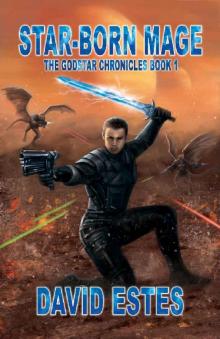 Star-Born Mage
Star-Born Mage Fire Country
Fire Country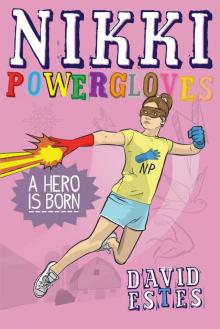 Nikki Powergloves- A Hero is Born
Nikki Powergloves- A Hero is Born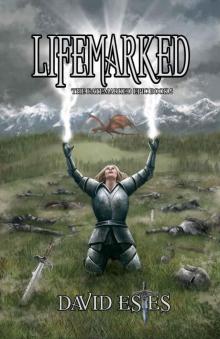 Lifemarked (The Fatemarked Epic Book 5)
Lifemarked (The Fatemarked Epic Book 5) Angel Evolution
Angel Evolution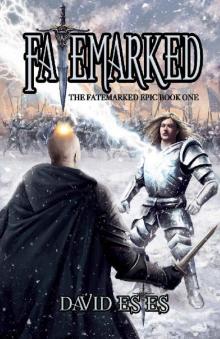 Fatemarked (The Fatemarked Epic Book 1)
Fatemarked (The Fatemarked Epic Book 1) The Star Dwellers
The Star Dwellers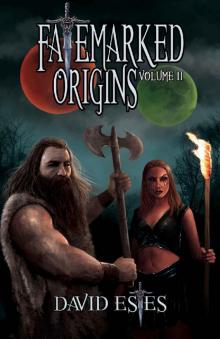 Fatemarked Origins: Volume II (The Fatemarked Epic Book 2)
Fatemarked Origins: Volume II (The Fatemarked Epic Book 2)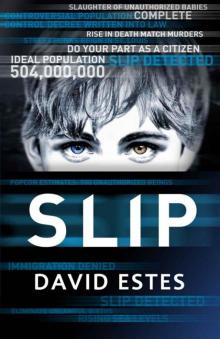 Slip (The Slip Trilogy Book 1)
Slip (The Slip Trilogy Book 1)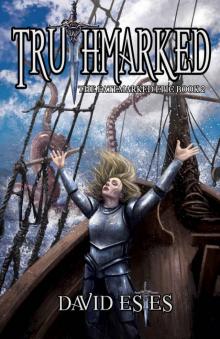 Truthmarked (The Fatemarked Epic Book 2)
Truthmarked (The Fatemarked Epic Book 2)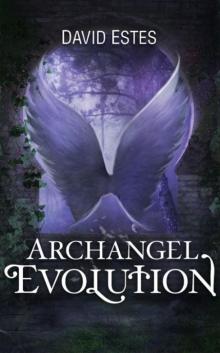 Archangel Evolution
Archangel Evolution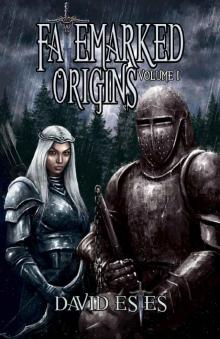 Fatemarked Origins: Volume I (The Fatemarked Epic Book 1)
Fatemarked Origins: Volume I (The Fatemarked Epic Book 1) Flip (The Slip Trilogy Book 3)
Flip (The Slip Trilogy Book 3)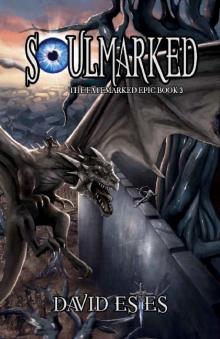 Soulmarked (The Fatemarked Epic Book 3)
Soulmarked (The Fatemarked Epic Book 3) Brew (Salem's Revenge Book 1)
Brew (Salem's Revenge Book 1)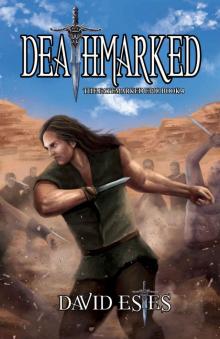 Deathmarked (The Fatemarked Epic Book 4)
Deathmarked (The Fatemarked Epic Book 4)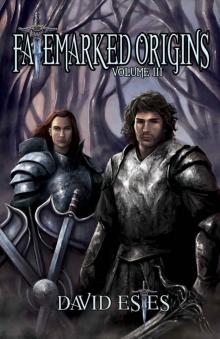 Fatemarked Origins (The Fatemarked Epic Book 4)
Fatemarked Origins (The Fatemarked Epic Book 4)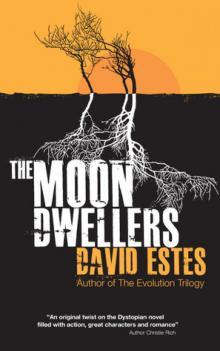 The Moon Dwellers
The Moon Dwellers Boil (Salem's Revenge Book 2)
Boil (Salem's Revenge Book 2)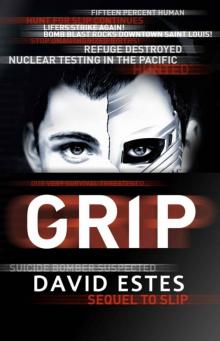 Grip (The Slip Trilogy Book 2)
Grip (The Slip Trilogy Book 2) Salem's Revenge Complete Boxed Set
Salem's Revenge Complete Boxed Set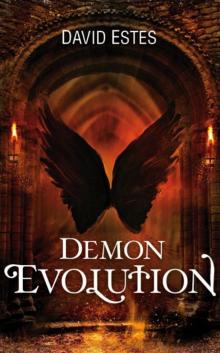 Demon Evolution
Demon Evolution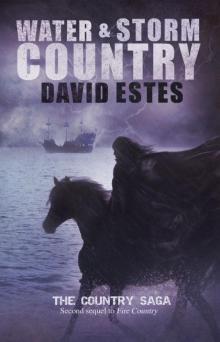 Water & Storm Country
Water & Storm Country The Earth Dwellers
The Earth Dwellers The Sun Dwellers (The Dwellers Saga)
The Sun Dwellers (The Dwellers Saga)